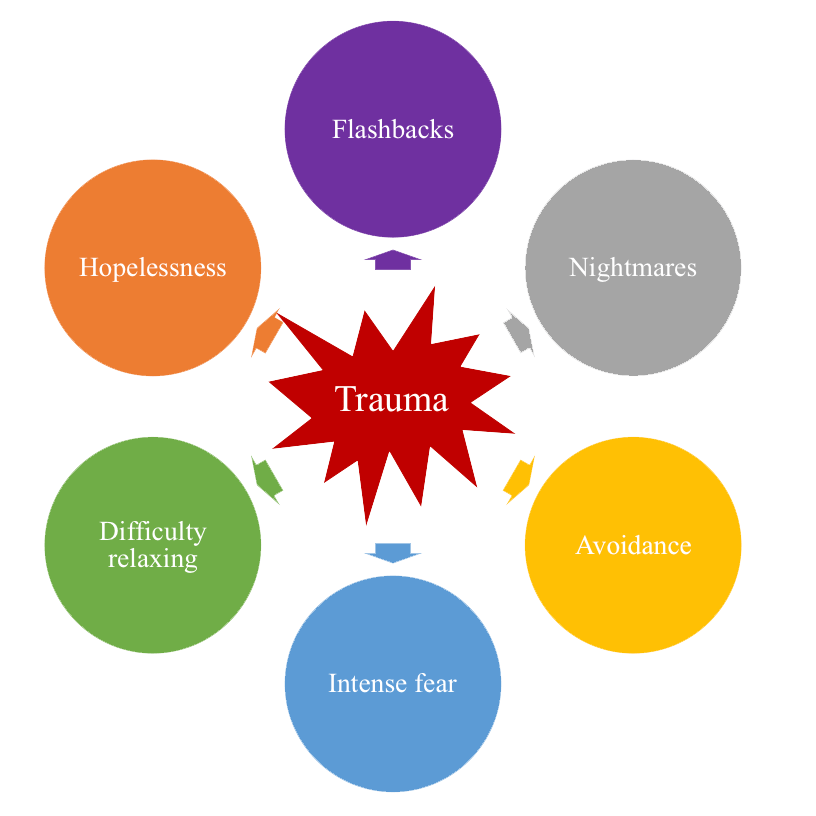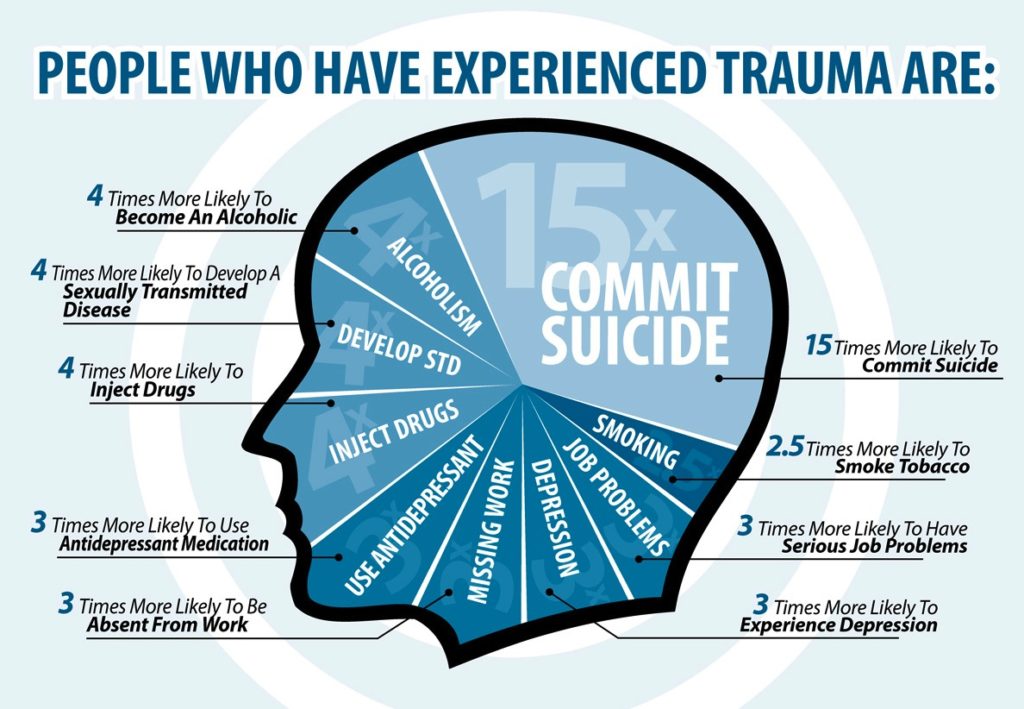Trauma therapists are specialists who help individuals process and work through traumatic life experiences. While general therapists may be able to provide some support about the trauma, it is often most effective for people to seek the help of a trauma therapist. In this article, we will explore what trauma is, what differentiates trauma therapists from general therapists, the benefits of working with them, and how to find one that is right for you.
Contents
Understanding Trauma Therapist

Trauma therapists are specialists who have undergone specific training in how to work with individuals who have experienced a traumatic event or events. Traumatic experiences can be extremely distressing and can negatively impact an individual’s life in many ways.
Trauma Therapy
Trauma therapy is a type of psychotherapy that aims to help people who have been affected by trauma. It can be used to treat a wide range of conditions, including post-traumatic stress disorder (PTSD), anxiety, and depression.
How Does It Help
Trauma therapy can help people process and make sense of their experiences, develop new coping strategies, and regain a sense of control over their lives. Some benefits of trauma therapy are:
- Able to process and understand your trauma
- Learn coping skills to deal with your trauma
- Gain insight into your reactions and behaviors
- Understand the effects of trauma
- Develop a new perspective on your trauma
- Reduce symptoms of PTSD
- Prevent suicide ideation or attempts
- Have a support system to help you through your healing process
Trauma Therapist Vs. General Therapist
The main difference between a trauma therapist and a general therapist is that trauma therapists have specific training in how to work with people who have experienced trauma. They will often use different approaches and techniques than general therapists.
Working With Trauma Therapist

If you decide to work with a trauma therapist, there are some things you can do to make the most of your sessions:
- Be honest and open with your therapist. You must be able to share everything about your traumatic experience, as well as how it has affected you.
- Make a list of questions before each session. This will help ensure that you get the most out of each meeting.
- Take advantage of any resources your therapist offers. These could include books, articles, websites, or workshops.
- Be patient. It may take some time for you to see results from therapy.
Approach They Employ
The type of therapist you work with will determine the approach they take. Some therapists use a combination of approaches, while others specialize in one type. However, all trauma therapists will be aware of the best ways to support someone who has experienced trauma.
Therapies They Offer
Trauma therapists use a variety of different therapies, including:
- Sensorimotor therapy: This therapy uses movement and touch to help people process their traumatic experiences.
- Trauma-focused psychodynamic therapy: This therapy helps people understand the underlying emotional issues that may have been triggered by their trauma.
- Trauma-focused cognitive-behavioral therapy: This therapy focuses on helping people understand and change the negative thoughts and beliefs that can develop after a traumatic experience.
- Eye movement desensitization and reprocessing (EMDR): This is a specific type of therapy that involves guiding people through eye movements while they think about their trauma. It is thought to help reduce the negative effects of trauma.
- Trauma-informed counseling: This type of counseling has a general understanding of trauma and how it can affect people. Trauma-informed counselors may not have specific training in one type of therapy, but they will be aware of the best ways to support someone who has experienced trauma.
NOTE: Each type of therapist will employ a different approach and use different techniques.
Brain-based Approaches To Help Clients After Trauma
Some newer approaches to trauma therapy are based on the latest research about how the brain responds to trauma. These therapies can be effective in helping people manage their symptoms and develop new coping strategies.
- Neurofeedback: This is a type of therapy that uses sensors to measure brain activity. The goal is to help people learn to control their own brain waves.
- Virtual reality exposure therapy: This therapy uses virtual reality technology to create simulations of traumatic events. It is used to help people confront and process their memories in a safe and controlled environment.
- Mindfulness-based stress reduction: This approach helps people learn how to focus on the present moment and accept their thoughts and feelings, even if they are negative.
NOTE: These are just a few of the many therapies that trauma therapists use. If you are interested in learning more, your therapist should be able to provide you with additional information.
Finding a Good Trauma Therapist

There are several things you can do to find a good trauma therapist. One way is to ask your doctor for a referral. Another option is to contact your local mental health association or the American Psychological Association.
You can also look for therapists who specialize in treating trauma. When you are searching for a therapist, make sure to ask about their training and experience.
It is also important to find a therapist with who you feel comfortable. You should be able to talk to them about your experiences and feel like they understand what you are going through.
What to Look Out For
There are some things you should look out for when choosing a trauma therapist.
- Make sure the therapist is licensed and has experience treating trauma.
- Ask about the therapist’s approach to therapy. Do they use a combination of approaches, or do they specialize in one type?
- Find out about the therapist’s training and experience.
- Make sure you feel comfortable with the therapist. You should be able to talk to them about your experiences and feel like they understand what you are going through.
NOTE: A good trauma therapist will be someone understanding and supportive. They will be someone with whom you feel comfortable talking about your experiences. If you do not feel like you are making progress, it may be time to look for a different therapist.
Red Flags To Avoid
There are also some red flags to watch out for when choosing a therapist.
- Do not choose a therapist who is pushy or aggressive.
- Avoid therapists who promise to make your trauma go away.
- Be cautious of therapists who tell you that their approach is the only way to treat trauma.
NOTE: If you have any concerns about a therapist, talk to your doctor or someone else you trust.
Things To Watch Out For
There are some things to watch out for when working with a trauma therapist.
- One is that the therapist does not become a replacement for your support system. It is important to have people in your life who you can talk to about your experiences, and these people should not be replaced by your therapist.
- Another thing to watch out for is feeling like you are not making progress. If you feel like you are not making any progress after a few sessions, it may be time to look for a different therapist.
NOTE: Remember, with the right therapist, you can begin to heal the wounds of your past.
Attending Trauma Therapy Session
When you first start therapy, your therapist will likely want to meet with you for an initial assessment. This is a chance for them to get to know you and learn more about your experiences.
After the assessment, you will usually meet with your therapist once a week for 50-60 minutes. In some cases, you may meet more or less often, depending on your needs.
During the session, you will talk about what has been going on in your life since your last meeting. Your therapist will also ask about any symptoms you have been experiencing and how they are affecting your day-to-day life.
You may also be asked to complete some tasks or exercises outside of therapy sessions. These tasks may be related to your trauma or they may be designed to help you understand and cope with your symptoms.
Your therapist will also provide support and guidance on how best to deal with any challenges you are facing.
Questions To Ask Me Before Session
Below are some questions you may want to ask yourself before your first session:
- What are my goals for therapy?
- What do I hope to gain from attending sessions?
- Do I feel comfortable with this therapist?
- Can I talk openly and honestly with this therapist?
- Does this therapist seem knowledgeable about treating trauma?
- What type of therapy does the therapist use?
- Do I have any concerns about this therapist?
If you can answer yes to most of these questions, then it is likely that this therapist may be a good fit for you. However, if you have any concerns, it is important to discuss them with your therapist or another trusted person.
Making the Most Out of Trauma Therapy

There are a few things you can do to get the most out of your therapy sessions.
- First, it is important, to be honest with your therapist. This includes telling them about any symptoms you are experiencing and sharing what has been going on in your life.
- Second, it is also important to ask questions and raise any concerns you have. If you do not understand something your therapist says, be sure to ask for clarification.
- Finally, it is important to be open to trying new things. Your therapist may suggest some strategies or exercises that you are not familiar with. However, these activities can be very helpful in managing your symptoms and working through your trauma.
Giving Feedback To Therapist

Many trauma therapists ask their clients to fill out a feedback form after each session. This form allows the therapist to get feedback from the client about how they felt during the session and how they think it went. This feedback can help the therapist to improve their work with the client.
So, you must let them know how you are feeling during therapy. And if you find the sessions helpful. If you are not getting the help you need, let your therapist know. So they can adjust their treatment plan.
Furthermore, some therapists also offer debriefing sessions after a traumatic event has occurred. These sessions allow the therapist to provide support to the client and discuss any symptoms they may be experiencing.
You should also report any concerns you have about your therapist or the therapy process. If you feel like your therapist is not a good fit for you, it is important to talk to them about it. You can also ask for a referral to another therapist.
Hearing From Experts

Several books deal with trauma and its effects. Some examples include:
- “The Body Keeps the Score” by Bessel van der Kol, and
- “Trauma and Recovery” by Judith Herman.
Resources
If you are looking for more resources, there are several places you can turn.
- The National Institute of Mental Health has a website that provides information on various types of mental health disorders.
- The American Psychological Association also has a website that provides information on different types of therapy.
Conclusion
Working with a trauma therapist can be a helpful way to deal with the aftermath of a traumatic experience. Trauma therapists can help people understand their trauma and learn how to cope with it.
Therapists are not all created equal and it is important to find one that you feel comfortable with. Remember, you can always change therapists if you don’t feel like they are a good fit for you.
If you or someone you know has been affected by trauma, please seek help. There are many resources available, including hotlines and support groups.
A Word From Therapy Mantra
Your mental health — Your psychological, emotional, and social well-being — has an impact on every aspect of your life. Positive mental health essentially allows you to effectively deal with life’s everyday challenges.
At TherapyMantra, we have a team of therapists who provide affordable online therapy to assist you with issues such as depression, anxiety, stress, workplace Issues, addiction, relationship, OCD, LGBTQ, and PTSD. You can book a free therapy or download our free Android or iOS app.


